SAP seeks $600m from Stella Artois brewer - what does this mean for other customers?
Tech giant pursues licence dispute against Anheuser, another large customer
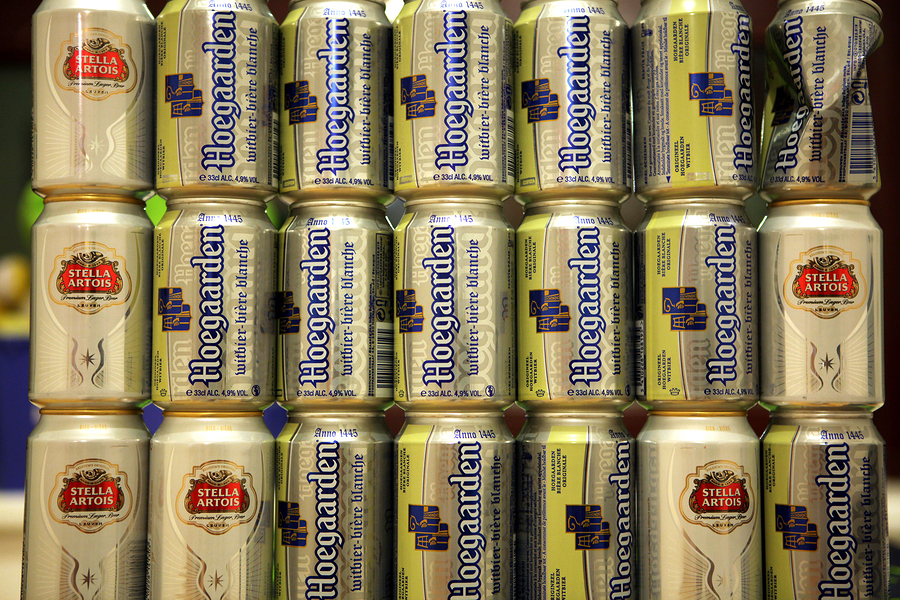
SAP is seeking more than $600 million in compensation from Hoegaarden brewer Anheuser-Busch InBev, weeks after successfully suing a British firm.
The tech giant accused the Belgian company, which also makes Budweiser and Stella Artois, of accessing its systems directly and indirectly without appropriate user licenses, and has commenced arbitration.
Anheuser said it will "vigorously" defend itself against the claims, which started in February and were revealed in the brewer's March US Securities and Exchange Commission filing.
"The statement of claim asserts multiple breaches of a 30 September 2010 Software License Agreement (together with related amendments and ancillary documents, the "SLA") based on allegations that company employees used SAP systems and data - directly and indirectly - without appropriate licenses, and that the company underpaid fees due under the SLA," the filing read.
SAP has not yet commented on the claims, but it comes shortly after the ERP giant won an indirect licensing High Court battle against British firm Diageo, against which it is seeking $54 million in compensation.
Diageo had contended that SAP PI was a "gatekeeper" licence providing access to SAP's ERP applications suite and its database, but the judge rejected the UK company's argument.
SAP had provided its services to Diageo from 2004 with pricing per named user. However, when in 2012 the firm implemented two third-party systems that hooked into SAP PI, a software engine, it broke this licence, the High Court found.
Sign up today and you will receive a free copy of our Future Focus 2025 report - the leading guidance on AI, cybersecurity and other IT challenges as per 700+ senior executives
Diageo Connect, a system allowing customers to order online through a Salesforce system connecting to SAP PI, and Diageo Gen2, enabling staff to pull up customer data from an Oracle database associated with SAP's ERP software via a Salesforce app, both required additional licences that Diageo did not obtain.
"The recent SAP indirect access spat with Diageo with 60 million quoted in the legal proceedings looks like small beer, excuse the pun, compared to the Anheuser-Busch case," Martin Thompson, head of Campaign for Clear Licensing, told IT Pro.
"This is further evidence that SAP are clearly desperate for revenue at any cost, even it means suing their very largest customers."
What does this mean for SAP customers?
Customer concern around SAP's licensing tactics is growing, according to the latest SAP special interest group meeting minutes from the ITAM Review. And the advent of new technologies like the IoT means indirect access is likely to become more and more likely as more devices and services link up to a business's core IT systems.
On the one hand, SAP has sought to reassure customers, with its head of commercialisation strategy last year telling IT Pro that it aims for "a good policy" where customers "know what's coming at them", but on the other hand it is pursuing heavy compensation claims from major customers.
"[SAP's approach] certainly is alienating customers," Duncan Jones, principal analyst at Forrester Research, told IT Pro. "I can't speak about this particular case [Anheuser], but I have seen other claims from SAP that have been out of all proportion to what could be considered fair.
"I'd urge courts to consider 'what would the two parties have agreed had SAP made clear at the time, and the customer had understood and accepted that "use" means what SAP now claims it means?'"
While the Anheuser case is yet to reach court, the High Court judge did not rule entirely in SAP's favour, disagreeing with the company's demand that 'named user' status be extended to Diageo's customers who accessed the system.
Jones said it was unlikely that Diageo's SAP account director would have forced it to pay the full price for this indirect use.
"The SAP salesperson would obviously have included the relevant access within the deal, at minimal extra cost," he claimed. "He'd have sold them the 'sales & service order processing' module, or sold them a special user category, or given them a 98% discount on the additional user licenses - but no way would have increased his price by 100X, nor would he have told the client to implement SAP without integrating it with other systems."
Picture: Bigstock
-
 The modern workplace: Standardizing collaboration for the enterprise IT leader
The modern workplace: Standardizing collaboration for the enterprise IT leaderHow Barco ClickShare Hub is redefining the meeting room
-
 Interim CISA chief uploaded sensitive documents to a public version of ChatGPT
Interim CISA chief uploaded sensitive documents to a public version of ChatGPTNews The incident at CISA raises yet more concerns about the rise of ‘shadow AI’ and data protection risks
-
 UK firms are pouring money into AI, but they won’t see a return on investment unless they address these key issues
UK firms are pouring money into AI, but they won’t see a return on investment unless they address these key issuesNews An SAP report projects increased AI investment, but cautions that too many organizations are taking a fragmented approach
-
 Digital immaturity is holding back growth in the UK
Digital immaturity is holding back growth in the UKNews Research from SAP shows a lack of digital maturity is holding back enterprise digital transformation goals.
-
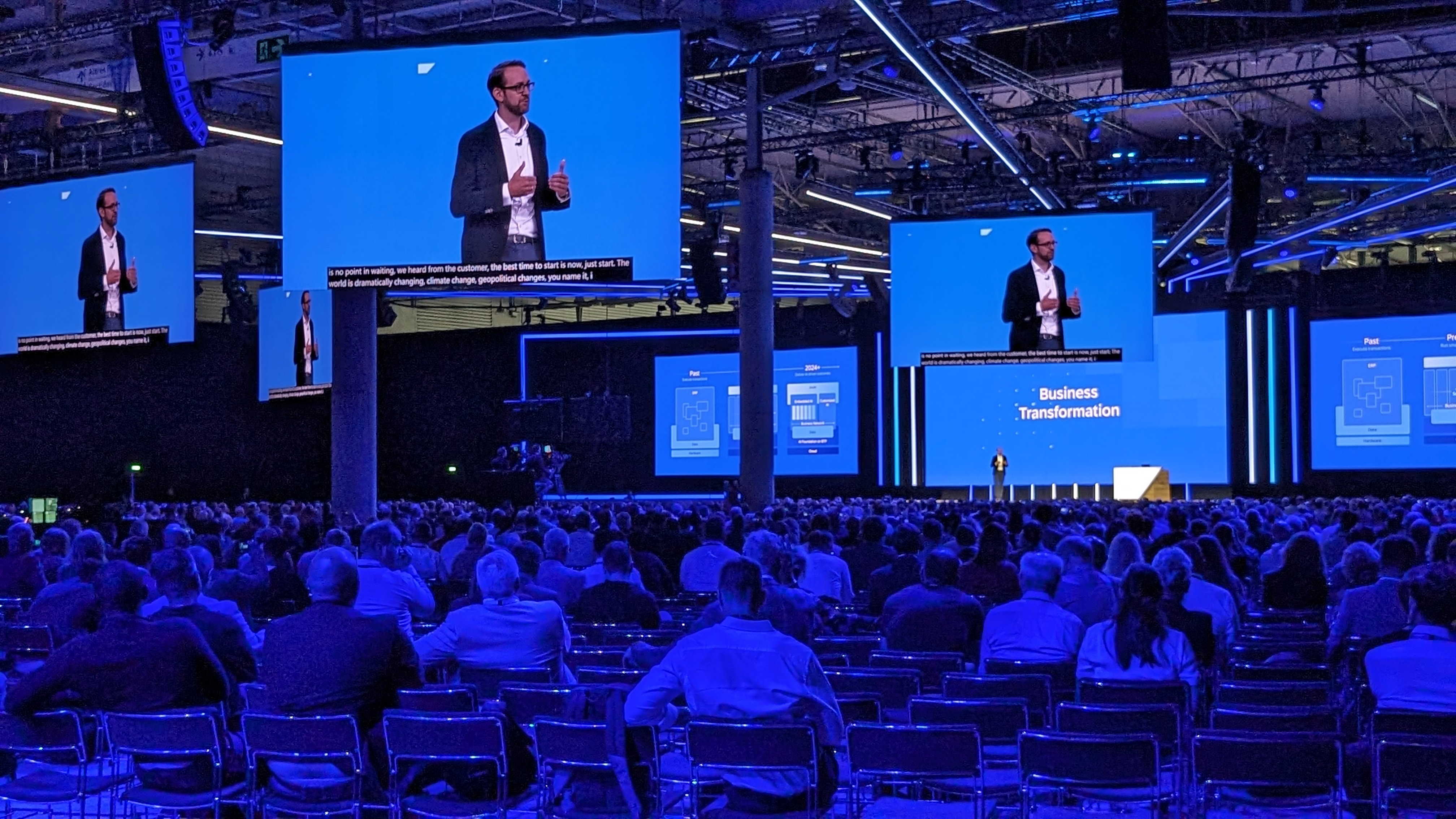 SAP has found a way to bring us all on the digital transformation journey
SAP has found a way to bring us all on the digital transformation journeyAnalysis From Joule to WalkMe, Sapphire 2024 was all about how generative AI can make everyone’s job that little bit easier – and this is just the start
-
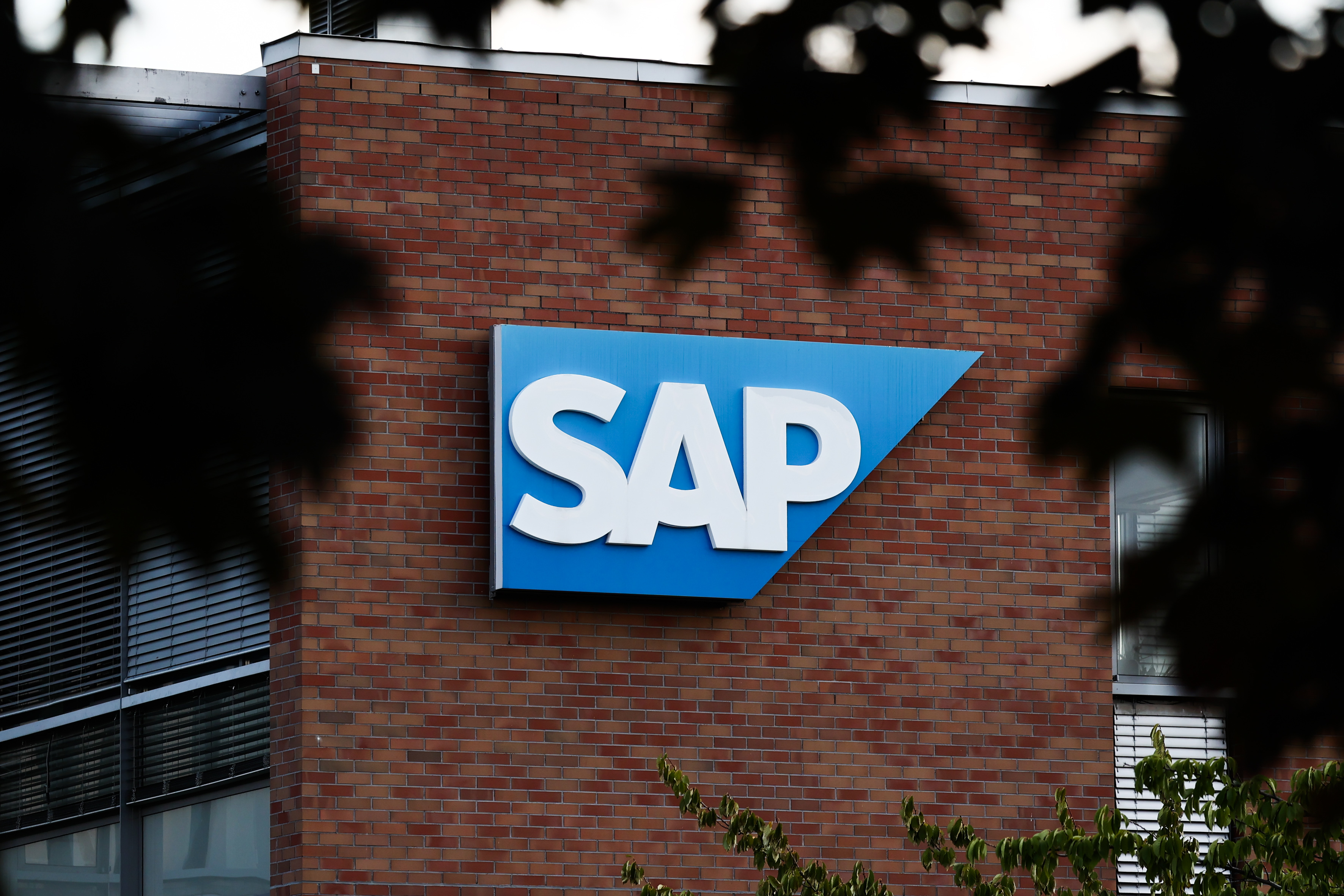 SAP just appointed its first chief AI officer
SAP just appointed its first chief AI officerNews The company veteran will lead a new SAP business unit dedicated to the growth and progression of its AI offering
-
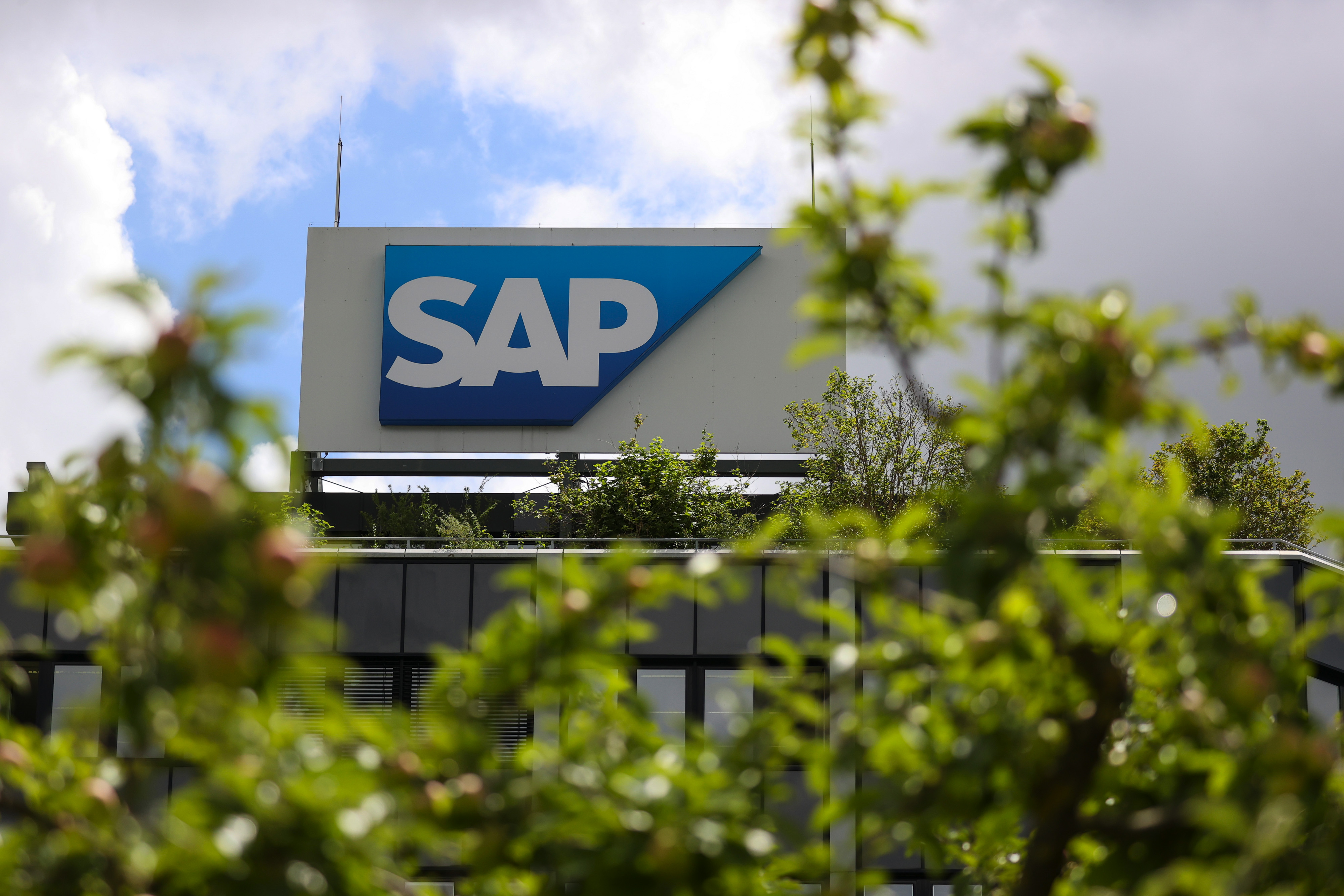 SAP treads a fine line with restructuring plans amid generative AI push
SAP treads a fine line with restructuring plans amid generative AI pushAnalysis SAP said it plans to integrate generative AI tools heavily within operations, but has been keen to emphasize this won’t equate to mass job cuts
-
 FDM Group strikes SAP partnership to train next generation of tech consultants
FDM Group strikes SAP partnership to train next generation of tech consultantsNews New collaboration aims to meet the growing demand for SAP expertise and bridge the wider digital skills gap
-
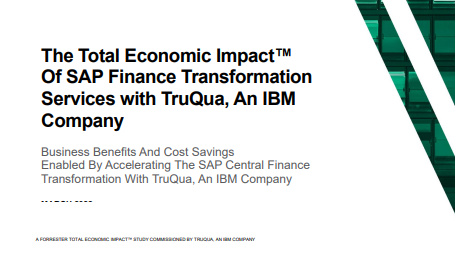 The Total Economic Impact™ of SAP finance transformation services with TruQua
The Total Economic Impact™ of SAP finance transformation services with TruQuaWhitepaper Business benefits and cost savings enabled by accelerating the SAP central finance transformation
-
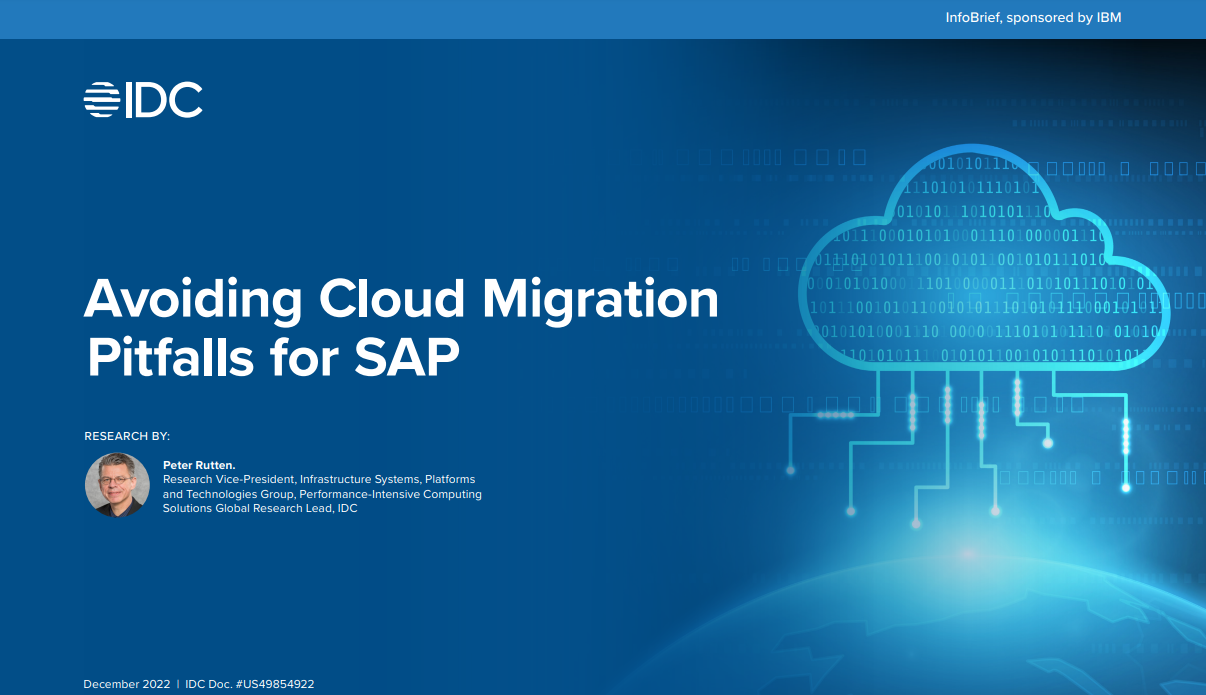 Avoiding cloud migration pitfalls for SAP
Avoiding cloud migration pitfalls for SAPWhitepaper Determining the best approach to SAP HANA